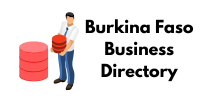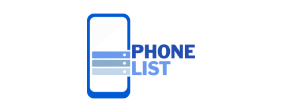Controlled Digital Lending Michelle Wu began working at the University of Houston Law Library in the wake of flooding from Tropical Storm Allison in 2001. Some parts of the city had 14 feet of water and the library took in at least 8 feet. Law books on the lower level were underwater and the lingering humidity produced mold that destroyed much of the remaining collection.
Michelle Wu, Georgetown Law Library
“I wanted to create a model that would allow recent mobile phone number data libraries to be able to preserve collections while respecting copyright in a world where natural disasters are a growing threat,” said Wu, now associate dean for library services and professor of law at the Georgetown Law Library in Washington, D.C. “Digitizing a collection and storing it under existing standards ensures that there is always a backed-up copy somewhere. During and after any disaster, the user would never lose access and the government would not have to reinvest to rebuild collections.” Controlled Digital Lending–the digital equivalent of traditional library lending–is a model that achieves these purposes.
For libraries with fewer resources
can also be a tool to maximize public dollars and explain the chicken, brussels sprouts, and salad quickly improve access. Once a library determines that its community no longer has a need for a certain CDL book (or as many copies as owned), the extra copies can be shared with libraries that never had access and would never have access without collaborative efforts.
“It’s a way of wealth sharing without
much cost to communities,” Wu said. “Storage,
digitization, and system costs would have already been budgeted by the lending library, CDL requires no shipping costs to be paid by either party, and the lending library’s community won’t feel the loss of copies as local need has decreased.”
“It’s a way to build a more robust collection for all of us to use. It helps the community and
society at large in the long term,” said Wu. “That’s not cameroon business directory something any of us can do alone. The only way we will do it is if we do it together.”
This is the first in a series of blog posts
highlighting how libraries and publishers are addressing the challenges of providing digital access to materials in their print collections. Using controlled digital lending, libraries and publishers have a new model for making their printed works available in digital form in ways that protect their copyrighted materials and intellectual property. Future posts will feature examples of how libraries, publishers, and authors are utilizing controlled digital lending to reach their patrons and readers, and the impact that controlled digital lending is having for their mission-driven work.
The Internet Archive believes passionately
That access to knowledge is a fundamental human right. Knowledge makes us stronger and more resilient; it provides pathways to education and the means to secure a job. But for many learners, distance, time, cost or disability pose daunting barriers to the information in physical books.
Brewster Kahle
Brewster Kahle, Digital Librarian
“To provide universal access to all knowledge
we need digital versions of books,” said Internet Archive Founder Brewster Kahle. “People will learn from what they get a hold of and we need high quality information – the best – accessible to everyone.”
Digitizing books has been at the core of the Internet Archive’s work for years. Since 2004, Internet Archive has partnered with more than 500 libraries to digitize and make. Accessible nearly 4 million books. Most of which are in the public domain and therefore easily. Published online without restrictions for use or reuse. To address the challenge of providing access to materials that are still in copyright. In 2011 Internet Archive began to pilot a service with Boston Public Library. The nation’s oldest and first municipally funded library. To digitize and lend in-copyright books. Over the past eight years. The effort has expanded into the Open Libraries program. Which now offers more than 1 million modern digitized books that can be checked out. one at a time, by readers all over the world for free. More than two dozen libraries – large and small, public and academic – are now partnering with the Archive to provide access to these materials at no additional cost to their patrons. It is a collaborative effort that is harnessing the creativity of the library community.

